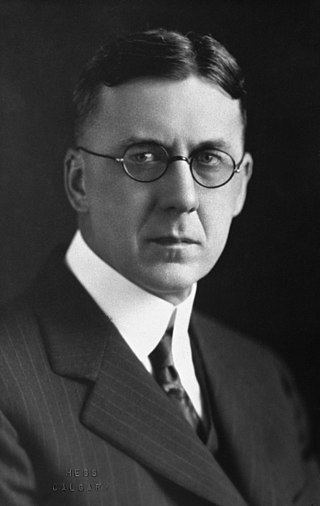Early life

Gerry Kuipers was born in the Netherlands in 1935 and immigrated to Canada in 1954 at the age of nineteen. [5] In 1997, Kuipers' memories of the Netherlands in World War II were published by the Zwartsluis Historical Society. [6]
Gerry Kuipers | |
|---|---|
| Born | Gerhardus Kuipers II July 31, 1935 |
| Died | May 13, 2013 (aged 77) |
| Other names | Gerald Kuipers Gerhard Kuipers |
| Occupation(s) | Entrepreneur, auto restorer |
| Children | 4, including Ronald A. Kuipers |
| Awards | Powerama Prize for Antique Car Restoration (2005) [1] |
Gerry Kuipers (born Gerhardus Kuipers; 31 July 1935) was a Dutch-Canadian businessman and auto restorer active in the late twentieth century. [2] [3] Kuipers was also the plaintiff in the 1976 Alberta Supreme Court lawsuit Kuipers v Gordon Riley Transport. [4] Following Kuipers' passing in 2013, many of his personal papers were archived in the Gerry Segger Heritage Collection at The King's University in Edmonton, Canada. [5]

Gerry Kuipers was born in the Netherlands in 1935 and immigrated to Canada in 1954 at the age of nineteen. [5] In 1997, Kuipers' memories of the Netherlands in World War II were published by the Zwartsluis Historical Society. [6]
Gerry Kuipers founded several Canadian industrial companies including Rainbow Eavestroughing in 1964, Rainbow Aluminum Products in 1977, Rainbow Metal Products in 1982, and Hardwill Holdings in 1990. [5] [7] In 1986, Rainbow Metal Products built the eves for Edmonton's Youth Empowerment & Support Services (YESS), whose buildings at 9310 82 Avenue have been recognized regionally in Alberta for their Late Art Deco architectural style. [8]
Kuipers began restoring Ford Model A automobiles in the 1970s; however, it was not until the early 2000s that Kuipers began to receive national recognition in Canada for the collection of automobiles that he had restored. [9] Some of Kuipers' notable restorations include the 1929 Ford Model A Pickup, restored in 1979, and the 1931 Ford Phaeton Deluxe, restored in 2001. [10] Kuipers' 1929 Ford Model A Pickup was used as the Royal Mail delivery truck in Roger Tilton's 1982 film Pilots North with Kuipers acting as the postman and driving the truck throughout the film. [11] [12]
Following Kuipers' restoration of a 1930 Ford Model A Roadster, the Edmonton Journal stated that Kuipers had "revived a piece of Canadian heritage" and the Victoria Times Colonist stated that the legacy of Kuipers' work "inspires patriotism" in Canada. [13] [14] Canwest journalist Darcy Gray wrote that the Canadian origin of Kuipers' 1930 Ford Model A Roadster was proven due to the fact that Kuipers found the body intact with original Robertson screws, which were not used in American models. [14] Canadian automotive historian James C. Mays has written that the cost for Kuipers' 1930 Model A "peaked in the $40,000 range" in the mid-1990s. [15]
In 2005, Kuipers won first prize at the Powerama Motoring Expo for a restored 1930 Ford Model A Roadster. [16] [17] [18]
Gerry Kuipers was the plaintiff in the 1976 Alberta Supreme Court lawsuit Kuipers v Gordon Riley Transport, which has received judicial notice and has been followed variously in the Supreme Court of Prince Edward Island, the Supreme Court of British Columbia, and the Court of Queen's Bench of Alberta. [19] The suit pertained to a car accident in Southern Alberta on 28 January 1972 which left one of Kuipers' sons seriously injured. [20] [21] Historically the lawsuit has been cited in Canadian tort case law because of Samuel Sereth Lieberman's judgments regarding negligence and standard of care. [22] [23] [24] Additionally, the case has been identified as part of a historical shift in Canadian tort law in the 1970s which took place when several Albertan personal injury lawsuits began to be argued based on negligence principles instead of the English tort of public nuisance. [25] The case was settled in Kuipers' favour and the family was awarded a total of $124,077.09 in damages. [lower-alpha 1] [21]
Gerry Kuipers had four children, one of whom is Canadian philosopher Ronald A. Kuipers. [26] Gerry Kuipers was a member of the Alberta Genealogical Society and Kuipers' personal genealogical research has been discussed in various publications such as Relatively Speaking and Aus der Grafschaft Bentheim in die Neue Welt. [27] [28]
Gerry Kuipers passed away on 13 May 2013. [29]

St. Francis Xavier University is a public undergraduate liberal arts university located in Antigonish, Nova Scotia, Canada. It is a member of the Maple League, a group of primarily undergraduate universities in Eastern Canada.

The Reynolds-Alberta Museum is an agricultural, industrial, and transportation museum in Wetaskiwin, Alberta, Canada. The museum is situated on an 89-hectare (220-acre) property containing the main museum building, an aviation display hangar, and its storage facility.

K-Days, formerly known as the Edmonton Exhibition, Klondike Days, and Capital Ex, is an annual 10-day exhibition held in Edmonton, Alberta, Canada mostly in late July. It runs in conjunction with the Taste of Edmonton and – from 2006 through 2012 – the Edmonton Indy.

The Edmonton Oil Kings were a Canadian junior ice hockey team, and founding member of the Western Hockey League. They played at Edmonton Gardens in Edmonton, Alberta, and later Northlands Coliseum. In 1976, they moved to Portland, Oregon to become the Portland Winter Hawks. A second incarnation of the team played only one season in 1977–78 before moving to Great Falls, Montana.

The King's University in Edmonton, Alberta, Canada, is a Canadian Christian university offering bachelor's degrees in the arts, humanities, music, social sciences, natural sciences, business, and education. King's is one of 26 publicly funded post-secondary institutions in Alberta. The university serves more than 900 students from across Canada and abroad, representing more than 16 nations.

The Court of King's Bench of Alberta is the superior trial court of the Canadian province of Alberta. During the reign of Elizabeth II, it was named Court of Queen's Bench of Alberta.

Arnold v Teno, [1978] 2 SCR 287 is a leading tort case from the Supreme Court of Canada. This decision was part of a trilogy of personal injury cases including Andrews v Grand & Toy Alberta Ltd (1978) and Thornton v Prince George School Board (1978).

Thomas Mitchell March Tweedie was a Canadian politician, lawyer and chief justice in Alberta, Canada.

By the arrangements of the Canadian federation, Canada's monarchy operates in Alberta as the core of the province's Westminster-style parliamentary democracy. As such, the Crown within Alberta's jurisdiction is referred to as the Crown in Right of Alberta, His Majesty in Right of Alberta, or The King in Right of Alberta. The Constitution Act, 1867, however, leaves many royal duties in Alberta specifically assigned to the sovereign's viceroy, the Lieutenant Governor of Alberta, whose direct participation in governance is limited by the conventional stipulations of constitutional monarchy.

Albert Freeman Ewing was a provincial politician and judge from Alberta, Canada. He served as a member of the Legislative Assembly of Alberta from 1913 to 1921 sitting with the Conservative caucus in opposition. After his political career he was appointed as a judge to the Supreme Court of Alberta.

The John Brownlee sex scandal occurred in 1934 in Alberta, Canada, and forced the resignation of the provincial Premier, John Edward Brownlee. Brownlee was accused of seducing Vivian MacMillan, a family friend and a secretary for Brownlee's attorney-general in 1930, when she was 18 years old, and continuing the affair for three years. MacMillan claimed that the married premier had told her that she must have sex with him for his own sake and that of his invalid wife. She had, she testified, relented after physical and emotional pressure. Brownlee called her story a fabrication, and suggested that it was the result of a conspiracy by MacMillan, her would-be fiancé, and several of Brownlee's political opponents in the Alberta Liberal Party.
The Court of Appeal of Alberta is a Canadian appellate court that serves as the highest appellate court in the jurisdiction of Alberta, subordinate to the Supreme Court of Canada.

Charles Gerald O'Connor was a provincial politician and judge from Alberta, Canada. He served as a member of the Legislative Assembly of Alberta from 1935 to 1940, sitting with the Liberal caucus in government. He also served on the Edmonton City Council in 1931 and 1932 and a federal court judge.
Ron Cummings is a Canadian retired litigator who was a major figure in Canadian law. He argued two of three cases before the Supreme Court of Canada that would eventually be considered a case law trilogy of personal injury cases for Canada. He also negotiated or litigated some of the largest personal injury awards in Canadian history.
The Powerama Motoring Expo was a Western Canadian auto show that was held annually in Edmonton, Alberta, Canada from 1984 until 2010. Powerama attracted contestants from throughout North America.

The Simona Maaskant Library is the library at the King's University in Edmonton, first opened in 1981 as The King's College Library, and renamed in 1998 after its chief librarian Simona Maaskant.
Samuel Sereth Lieberman was a Canadian judge. Lieberman was the first Jewish judge in the province of Alberta. He was inducted into the Alberta Order of Excellence in 2006.
Kuipers v Gordon Riley Transport, 1 C.C.L.T. 233 (1976) was a Canadian personal injury case involving negligence, standard of care, causation, and hindsight.
Roderick Phillip Wacowich is a former Canadian Master in Chambers in the Court of Queen's Bench of Alberta.

Huff Bremner Estate is a neighborhood in northwest Edmonton, Alberta, Canada. Throughout the early twentieth century, Huff Bremner was advertised as a desirable residential neighborhood and it was home to a number of Edmonton families. Beginning in 1952, however, Huff Bremner began to be rezoned as an industrial district. The neighborhood is now sometimes referred to as Huff Bremner Estate Industrial. As of 2022, Huff Bremner contains one municipally-designated heritage building, as well as several restaurants, office buildings, and industrial warehouses.